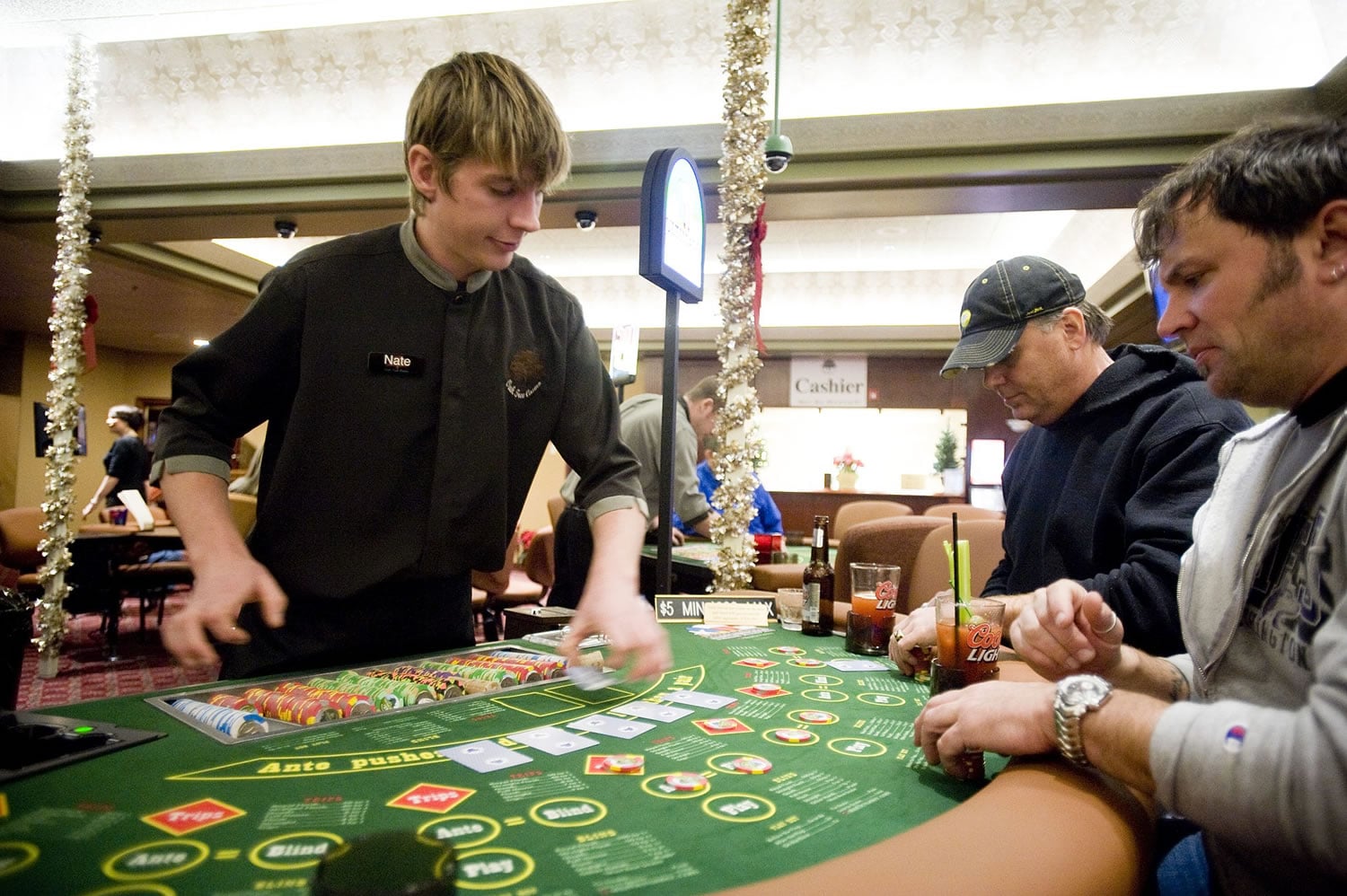Their body language at the table, not their frequent presence there, gives them away.
Chuck McCormick has seen these types of “problem gamblers” throughout his 38-year career working at casinos and cardrooms. They have a despair written across their being that says they are blowing their mortgage or car payment.
“You know when they lose it’s not entertainment to them,” said McCormick, who added these are the people he wants to discourage from playing at Woodland’s newly opened Oak Tree Casino, where he serves as general manager.
The state of Washington, as a whole, has taken steps to reduce gambling addiction in the past decade. Just how successful the state has been is difficult to say, however; no recent study exists on the problem, even as gambling has mushroomed into a $2.5-billion industry.
Washington instituted a 0.13 percent business and occupation tax on cardrooms, commercial pull tab operations and bingo halls in 2005. The tax generated between $400,000 to $500,000 toward problem gambling programs in 2011, said Susan Arland, spokeswoman with the Washington Gambling Commission. The state’s 28 tribal casinos, which are not bound by the tax, paid around $1.6 million toward similar programs in 2010, Arland added.
The money goes to the Washington Department of Behavioral Health and Recovery, which uses it toward treatment for addicts and their families, training for treatment providers, and outreach and awareness, among other programs. Washington, like most states, does not have an in-patient program for gambling addicts, state officials said.
La Center’s four cardrooms each pay thousands of dollars annually to problem gaming programs via the tax, according to state records. The Oak Tree Casino will pay the tax if it clears $50,000 in net revenues in 2012, as is expected.
The Cowlitz Indian Tribe has proposed paying no less than $50,000 annually, once its casino opens in La Center, toward problem gaming programs designated by Clark County. There is no timeline for when the casino would open.
No study since 1999
Washington performed its last problem gambling study in 1999.
Since then, gambling revenues have more than tripled.
The state’s net gambling receipts that year were $698.8 million, according to the Washington Gambling Commission. The organization estimated gambling receipts would top $2.5 billion in 2011.
Money provided for problem gambling programs equates to “pennies,” when viewed relative to net receipts, said Maureen Greeley, executive director of the Evergreen Council on Problem Gambling, a nonprofit that works with the state to provide services for addicts.
The 1999 study, which was paid for by the state lottery, showed 2 to 4 percent of adults were “problem gamblers,” Greeley said. The percentage of gambling addicts among adolescents was higher, she added.
A newer study has not been performed due to its estimated cost, state officials said. Such a study, while needed, raises a quandary, Greeley said.
“Do you want to take away money from treatment to fund another study?” she asked rhetorically.
It is quite possible, given the prevalence of online gambling, that addiction has risen in the past decade, Greeley said.
There are plenty of on-site options for gamblers, too.
Washington has 61 cardrooms, 1,043 commercial pull tab operations and 234 bingo halls, in addition to its 28 tribal casinos.
“If you are seeking an avenue to gamble, it’s there for you at a very close proximity,” Greeley said. “There’s no lack of opportunity to gamble.”
The dreaded call
Gambling addiction is unlike other addictions. It does not come with slurred speech or facial sores, but it can lead to the same ruins, if not treated, as alcohol or drugs, said Dolores Chiechi, executive director with the Recreational Gaming Association, which represents cardrooms across the state.
What makes gambling addiction hard to detect is different players have different thresholds.
“You might say, ‘If he’s losing $1,000 per hand five times per week, he’s got to be a problem gamer,’” Chiechi said. “But what if he’s driving a Bentley?”
Gamers who do not have families and substitute gambling to fill that void do not concern McCormick as much as, say, those who have families but devote large amounts of time to the casino.
Two weeks into its existence, the Oak Tree has not received the dreaded call yet, McCormick said. The call, he explained, comes from a relative alerting casino employees that a relative is losing the family’s savings. Every casino or cardroom receives the call. McCormick said he would have no problem barring such a player from his establishment.
The Cowlitz Indian Tribe’s casino project is in federal court limbo, a place it could stay for years. Yet, tribe chairman Bill Iyall said gambling addiction is something his tribe plans to keep a close eye on.
The La Center cardrooms have done likewise through the years, Chiechi noted.
They donated money to the Evergreen Council on Problem Gambling for years, Chiechi said, adding that the New Phoenix and Last Frontier cardrooms each turned over thousands of dollars in unclaimed or lost funds. La Center cardroom owners were out of town and unavailable for comment for this story.
The state’s problem gambling programs have undoubtedly benefitted from the tax passed in 2005, Greeley said. Still, more money would be welcomed for training, treatment and an updated study, she added.
Ray Legendre: 360-735-4517; ray.legendre@columbian.com.



